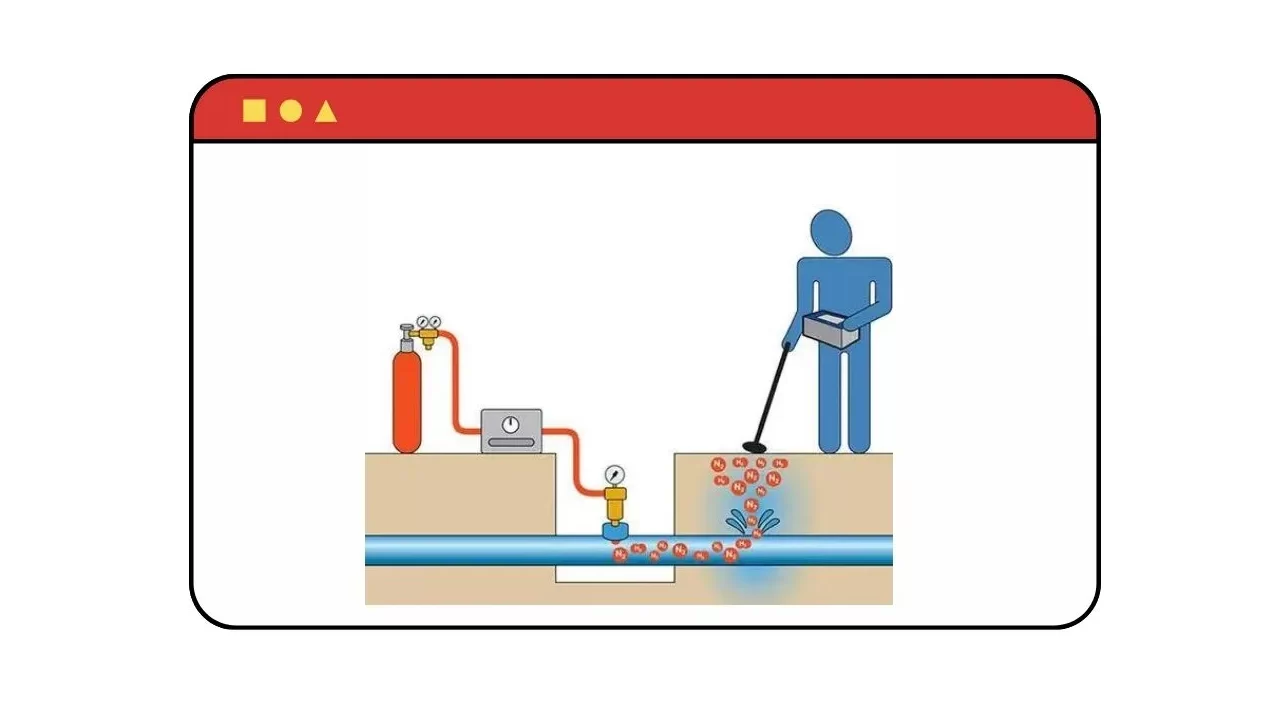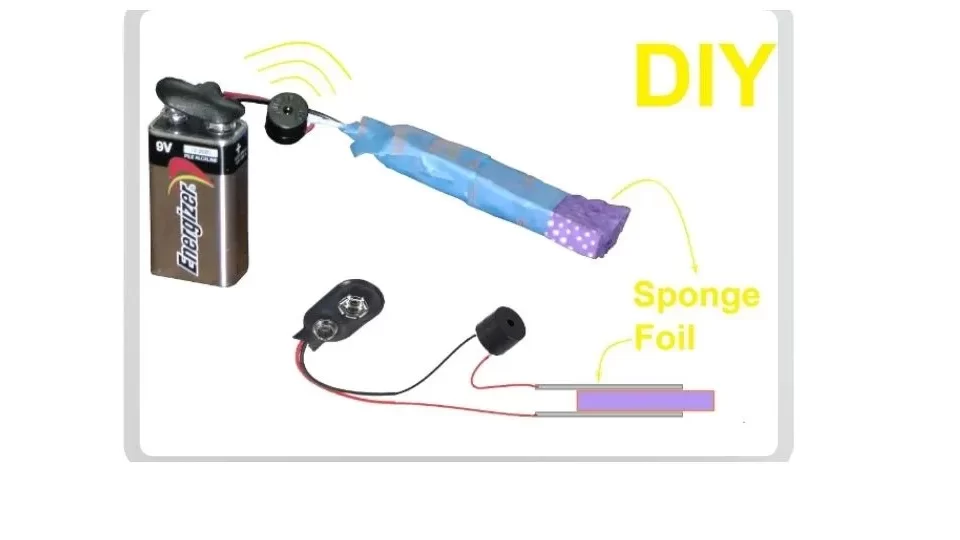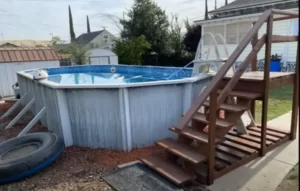DIY underground water leak detector – water leaks are right at the top of the list. Not only can they cause significant damage to your property, but they can also lead to skyrocketing water bills and potential health hazards. Identifying and fixing water leaks promptly is crucial to prevent further damage and ensure the efficient use of water resources.
Fortunately, with advancements in technology and the rise of do-it-yourself (DIY) solutions, you can now take matters into your own hands and detect underground water leaks effectively.
In this post, we will explore the world of DIY underground water leak detector, providing you with valuable insights, step-by-step instructions, and expert tips to tackle this issue like a pro.

Contents
DIY Underground Water Leak Detector: Unveiling the Basics
Before diving into the nitty-gritty of DIY underground water leak detectors, let’s first understand what they are and how they work. These devices are designed to help you identify and locate hidden water leaks within your property’s underground plumbing system.
By detecting the smallest anomalies in water flow or pressure, these detectors enable you to pinpoint the exact location of the leak, allowing for quick and accurate repairs.
Read Also : How to Find a Leak in Above Ground Pool
The Importance of Detecting and Fixing Underground Water Leaks
Detecting and fixing underground water leaks is paramount for several reasons.
Firstly, it saves you money on your water bill. A small leak may seem insignificant, but over time, it can waste a substantial amount of water, leading to inflated bills.
Secondly, water leaks can cause structural damage to your property’s foundation, walls, and floors. The longer a leak goes undetected, the more extensive the damage becomes, potentially resulting in costly repairs. Lastly, fixing leaks promotes water conservation, ensuring that this precious resource is not wasted unnecessarily.
By being proactive in leak detection, you contribute to environmental sustainability and reduce your ecological footprint.
How to Make Your Own DIY Underground Water Leak Detector
Now that we understand the importance of detecting and fixing underground water leaks let’s delve into the exciting world of DIY underground water leak detectors. With a few readily available tools and materials, you can create your own effective leak detection system. Follow the step-by-step instructions below to get started:
Materials You Will Need
- PVC pipe
- Pressure gauge
- Teflon tape
- PVC glue
- Drill
- Hose connector
- Shovel
- Waterproof marker
- Garden hose
- Water valve shut-off key

Step 1: Planning and Preparation
Before you start building your DIY underground water leak detector, it’s essential to plan and prepare adequately. Here’s what you need to do:
- Identify the areas where leaks are most likely to occur, such as near water fixtures, underground pipes, or the main water supply line.
- Determine the layout and route of the underground pipes to understand where to install your detector.
Step 2: Building the Detector (homemade underground water leak detector)
Once you have completed the planning stage, it’s time to assemble your DIY underground water leak detector. Follow these instructions carefully:
- Cut a piece of PVC pipe to the desired length, ensuring it fits the area you want to monitor.
- Attach a pressure gauge to one end of the pipe using Teflon tape to create a watertight seal.
- Apply PVC glue to the other end of the pipe and connect a hose connector to it. Allow the glue to dry completely.
- Using a drill, create small holes along the length of the pipe. These holes will allow water to escape when a leak is detected.
- Attach the detector to the main water supply line or the specific pipe you want to monitor, securing it tightly with PVC glue.
Step 3: Testing and Monitoring
With your DIY underground water leak detector in place, it’s time to test and monitor for leaks. Follow these steps:
- Shut off the main water valve using a water valve shut-off key.
- Connect a garden hose to the hose connector on the detector.
- Open the main water valve partially and observe the pressure gauge. If the gauge shows a sudden drop or fluctuation, it indicates a leak.
- Use a waterproof marker to mark the location of the detected leak on the ground surface.
- Repeat the process for other areas you suspect may have leaks.
Step 4: Fixing the Leaks
Once you have successfully identified the location of the underground water leaks, it’s time to take action and fix them. Depending on the severity of the leak and your expertise, you can either attempt to repair it yourself or seek professional help. Here are some common DIY solutions for fixing underground water leaks:
- Pipe Repair: If the leak is occurring at a joint or connection, you can try tightening or replacing the fittings using a wrench or pliers.
- Epoxy Putty: For small cracks or holes in pipes, applying epoxy putty can provide a temporary fix. Make sure to follow the instructions on the putty packaging for the best results.
- Pipe Sleeve: In cases where a section of the pipe is damaged, you can use a pipe sleeve to reinforce and seal the affected area.
- Professional Assistance: For complex or severe leaks, it’s advisable to consult a licensed plumber who specializes in underground water leak detection and repair.
who to call for underground water leak
If you suspect an underground water leak, it’s important to address it promptly to prevent damage and water waste. Here are steps you can take:
- Water Utility Company:
- In many cases, your first point of contact should be your local water utility company. They may be able to help you determine if the issue is on their end or if it’s a problem with your private plumbing.
- Plumber:
- If the water utility company confirms that there is no issue on their end, you should contact a licensed plumber. Plumbers are trained to detect and repair leaks in both the visible and underground portions of your plumbing system.
- Emergency Services:
- If the leak poses an immediate threat or risk, such as flooding or damage to property, you should contact emergency services or your local water emergency hotline.
- Local Authorities:
- Some municipalities have specific departments or agencies that handle water-related issues. Check with your local city or town hall to see if there is a dedicated department for water-related concerns.
- Homeowners Association (if applicable):
- If you live in a community with a homeowners association (HOA), they may have specific procedures or contacts for addressing water leaks. Check with your HOA for guidance.
What is the Causes Of Underground Water Leaks?
1. Aging Pipes
Aging infrastructure is a leading cause of water leaks. Over time, pipes can corrode or develop weaknesses, making them susceptible to leaks. Regular inspections and timely replacement of aging pipes can mitigate this risk.
2. High Water Pressure
Excessive water pressure can strain plumbing systems, leading to leaks. Installing a pressure regulator can help maintain a safe and optimal pressure level, reducing the likelihood of leaks.
3. Corrosion
Corrosion, often caused by chemical reactions in the water supply, can weaken pipes and fixtures. Water with high acidity or alkalinity can accelerate this process. Regular water quality testing and addressing imbalances can prevent corrosion-related leaks.
4. Poorly Installed or Faulty Appliances
Improper installation of appliances like washing machines and dishwashers can result in leaks. Additionally, wear and tear on appliance components can lead to malfunctions. Regular maintenance and professional installation are essential to prevent leaks.
5. Clogged Drains and Pipes
Accumulation of debris, grease, or foreign objects in drains and pipes can cause blockages, leading to leaks. Regular cleaning and proper disposal practices can prevent clogs and subsequent leaks.
6. Freezing Temperatures
In colder climates, frozen water in pipes can expand, causing them to burst. Adequate insulation and measures to prevent freezing, such as keeping faucets dripping during freezing weather, can safeguard against winter-related leaks.
7. Tree Roots
Tree roots seeking water sources can infiltrate underground pipes, causing cracks and leaks. Strategic planting and regular inspections can help prevent root-related plumbing issues.
8. Poor Construction
Faulty construction or inferior materials can contribute to water leaks. Hiring reputable contractors and using quality materials during construction or renovations is crucial in preventing structural issues that may lead to leaks.
9. Earthquakes and Soil Shifting
In earthquake-prone areas or regions with unstable soil, ground movements can stress and damage pipes, leading to leaks. Securing pipes and conducting post-earthquake inspections can minimize this risk.
10. Physical Damage
Accidental damage, such as punctures or impact, can compromise plumbing systems. Awareness and caution during home improvement projects or landscaping can prevent unintentional damage.
Conclusion
By now, you should have a solid understanding of DIY underground water leak detector and how they can help you identify and fix leaks effectively. Remember, timely detection and repair of underground water leaks not only saves you money but also safeguards your property and contributes to environmental sustainability. With the step-by-step instructions and expert tips provided in this article, you have the knowledge and confidence to tackle.
this issue like a pro. So, roll up your sleeves, gather the necessary tools, and take control of your plumbing system. Happy leak detection and repair!
Frequently Asked Questions (FAQs)
How can I identify if I have an underground water leak?
Look for signs such as unusually high-water bills, low water pressure, damp or moldy spots on walls or floors, and the sound of running water when no faucets are in use.
Are DIY underground water leak detectors reliable?
DIY detectors can be effective in identifying leaks, but their accuracy may vary based on the quality of materials and your installation skills
Can I use a DIY underground water leak detector for my entire property?
While it’s possible, it’s more practical to focus on specific areas prone to leaks, such as underground pipes near your home or main water supply lines.
How often should I check for underground water leaks?
It’s recommended to inspect your property for leaks at least once a year. However, if you notice any signs of a leak, it’s best to investigate immediately.
Can I fix underground water leaks myself?
Minor leaks can be repaired using DIY methods. However, for complex leaks or if you lack plumbing experience, it’s advisable to hire a professional plumber.
What are the benefits of DIY underground water leak detection?
DIY detection allows for early identification of leaks, cost savings on water bills, prevention of further damage, and increased water conservation efforts
who to call for underground water leak
If you suspect an underground water leak, it is recommended to call your local water utility company as the first step. They can assess whether the issue is related to the public water supply or if it is a matter for a licensed plumber to address on your property

My name is James A. Bright, and I have worked in the pool and plumbing industries for over 15 years. I started poolprosoutions.com to share my experience with you guys. Here, I provide helpful guides and tips related to pool care, hot tub care, underground water leaks, and pipe leaks.



